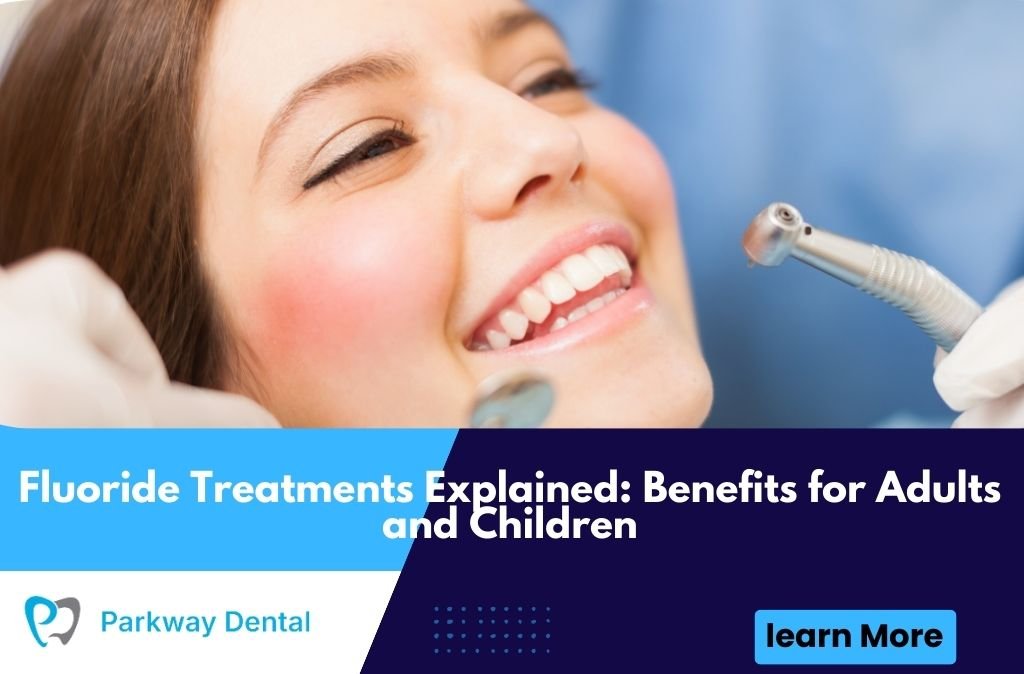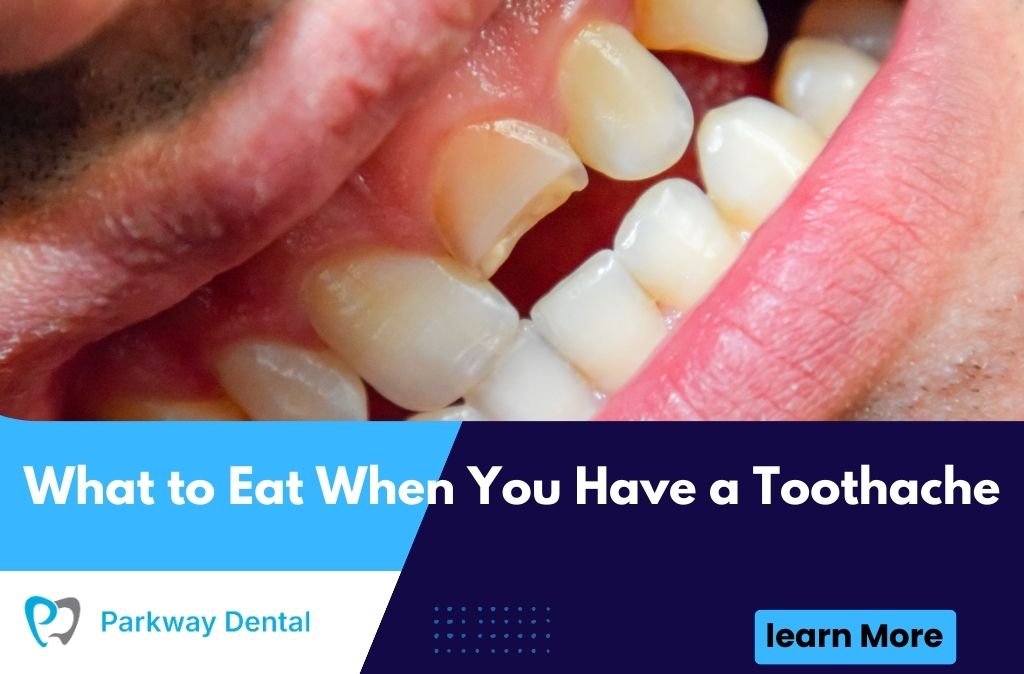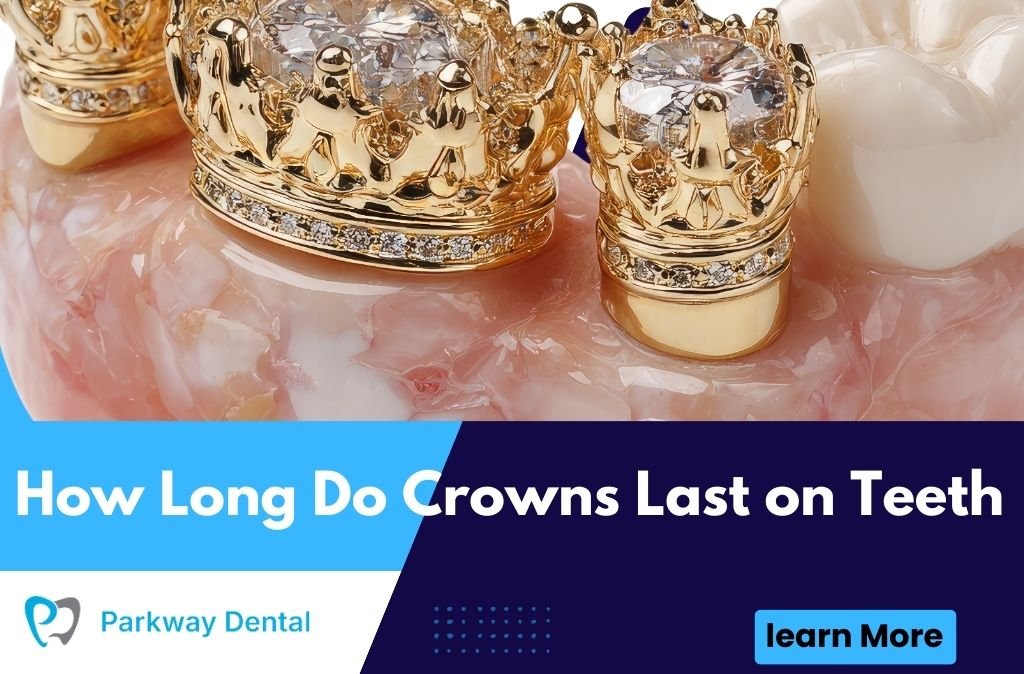Fluoride has long been recognized as one of the most effective tools in modern dentistry. It strengthens teeth, prevents cavities, and plays a key role in maintaining oral health. While it’s often associated with children, fluoride treatments benefit people of all ages. Whether you are a parent ensuring your child’s teeth develop properly or an adult looking to prevent decay, understanding the role of fluoride can make a big difference in your dental health.
This guide will explain everything you need to know about fluoride treatments for adults and children, their benefits, types, and how often you should consider them.
What Is Fluoride and Why Is It Important?
Fluoride is a naturally occurring mineral found in water, soil, plants, and even certain foods. In dentistry, it is widely used because of its ability to strengthen tooth enamel and fight decay. Enamel is the hard, outer surface of teeth, and when exposed to acids from food or bacteria, it can weaken and lead to cavities.
Fluoride helps by:
- Remineralizing weakened enamel.
- Making teeth more resistant to acid attacks.
- Preventing cavity formation and slowing down existing decay.
How Fluoride Treatments Work
Fluoride treatments work by applying concentrated fluoride in varnish, gel, or foam form directly onto teeth. The mineral penetrates enamel, remineralizing weakened areas and creating a strong shield against cavities. This process reduces decay, strengthens teeth, and helps both children and adults maintain healthier, cavity-resistant smiles over time.
Professional Fluoride Application
During a dental visit, a fluoride treatment may be applied as a gel, foam, or varnish. The dentist coats the teeth with the solution, which allows fluoride to penetrate the enamel and create a protective barrier.
At-Home Fluoride Use
Aside from professional treatments, fluoride toothpaste and mouth rinses provide daily protection. In some cases, fluoride supplements like tablets or drops may be prescribed for children living in areas with low fluoride in the water supply.
Benefits of Fluoride Treatments for Children
The benefits of fluoride treatments for children include protecting developing enamel, preventing early childhood cavities, and strengthening permanent teeth before they erupt. Since kids often struggle with consistent brushing, professional fluoride applications add an extra layer of defense, ensuring long-term oral health and reducing the need for complex dental treatments later.
Preventing Early Cavities
Children are more prone to cavities due to developing enamel and inconsistent brushing habits. A fluoride treatment for children provides extra protection, ensuring that baby teeth and emerging permanent teeth stay strong.
Strengthening Developing Teeth
Even before teeth fully emerge, fluoride helps strengthen them, making them less vulnerable to decay once they erupt.
Long-Term Oral Health
Early exposure to fluoride reduces the risk of cavities throughout childhood, setting the stage for healthier permanent teeth in the future.
Benefits of Fluoride Treatments for Adults
The benefits of fluoride treatments for adults go beyond cavity prevention. They help reduce tooth sensitivity, protect exposed roots caused by gum recession, and slow decay in high-risk patients such as smokers or those with dry mouth. Fluoride also supports older adults by strengthening weakened enamel and preventing costly restorative treatments.
Protecting Against Tooth Decay
Adults are still at risk for cavities, especially those who consume sugary diets, smoke, or suffer from dry mouth. A fluoride treatment for adults strengthens enamel and provides ongoing protection.
Fighting Gum Disease and Root Exposure
As gums recede with age, tooth roots become exposed and more vulnerable to decay. Fluoride helps protect these areas and reduces sensitivity.
Supporting Older Adults
Fluoride treatments for older adults are particularly important, as age often brings dry mouth due to medications. Reduced saliva increases cavity risk, and fluoride can slow down decay progression significantly.
Daily Fluoride Sources: Toothpaste, Mouthwash, and Diet
Common daily fluoride sources include brushing with fluoride toothpaste, rinsing with fluoride mouthwash, and consuming foods or beverages that naturally contain fluoride, like tea and seafood. These everyday habits help maintain strong enamel and provide consistent protection. Combined with professional treatments, they create a complete defense system against cavities and decay.
Fluoride Toothpaste
The most common daily source, fluoride toothpaste, is recommended for both adults and children. It helps maintain enamel strength and prevents cavities with every brushing.
Fluoride Mouthwash
For individuals at higher risk of decay, fluoride rinses provide added protection.
Dietary Sources of Fluoride
Foods like tea, spinach, grapes, and seafood naturally contain fluoride. Many communities also add fluoride to drinking water, helping reduce cavity rates on a population level.
Recommended Daily Intake of Fluoride
The recommended daily intake of fluoride for children and adults varies:
- Children 1–3 years: 0.7 mg
- Children 4–8 years: 1 mg
- Children 9–13 years: 2 mg
- Teens 14–18 years: 3 mg
- Adults: 3–4 mg
Too little fluoride increases cavity risk, while excessive amounts can lead to fluorosis, a condition that causes white streaks on teeth.
Fluoride Treatments for High-Risk Patients
Certain groups benefit more from fluoride:
- Children with a history of cavities.
- Adults with gum disease or exposed roots.
- People with orthodontic braces.
- Patients undergoing radiation or medications causing dry mouth.
For these groups, dentists may recommend fluoride treatments every 3–6 months.
Are Fluoride Treatments Safe?
Yes, fluoride treatments are safe when applied professionally or used in recommended amounts. Dentists carefully control dosage, especially for children, to avoid overexposure.
For kids, fluoride vitamins and tablets may be prescribed only when necessary. Regular dental guidance ensures safe use at all ages.
Common Myths About Fluoride
- Myth: Fluoride is harmful to health.
Fact: When used correctly, fluoride is safe and effective. Problems occur only with excessive, uncontrolled intake. - Myth: Adults don’t need fluoride.
Fact: Adult teeth need fluoride just as much as children’s, especially to prevent root decay and cavities linked to aging. - Myth: Natural remedies can fully replace fluoride.
Fact: While diet and oral hygiene help, fluoride remains the most effective way to prevent cavities.
Conclusion
Fluoride treatments are one of the most powerful and affordable tools in dentistry for both adults and children. They strengthen enamel, prevent decay, and provide lasting protection against cavities. From toothpaste and mouth rinses to professional applications, fluoride ensures better oral health at every age.
If you want personalized care and guidance, visit an experienced Dentist in West Roxbury, MA who can recommend the right fluoride treatment for you and your family.
FAQs
What are the benefits of a fluoride treatment for adults?
Fluoride treatments protect against decay, strengthen enamel, and reduce sensitivity, especially in adults with gum recession or dry mouth.
What is fluoride treatment for children?
It’s a professional application of fluoride varnish, gel, or foam that strengthens developing teeth and prevents early cavities.
What is the recommended daily intake of fluoride for children and adults?
Children require 0.7–2 mg daily, while adults need 3–4 mg depending on age and gender.
What are the benefits of fluoride toothpaste?
It strengthens enamel, prevents cavities, and provides daily protection against bacteria and acids.
Do adult teeth need fluoride?
Yes. Adults need fluoride to prevent cavities, root decay, and enamel erosion.
What are fluoride tablets for adults?
They are supplements prescribed in areas with low natural fluoride in water, helping maintain adequate levels.
How often do adults need a fluoride treatment?
Adults at normal risk may need treatments once a year, while high-risk patients may require them every 3–6 months.
Do fluoride treatments help older adults?
Yes. They prevent root decay, protect against dry mouth complications, and maintain oral health in seniors.
Are fluoride vitamins safe for kids?
Yes, but only under professional supervision and in recommended doses. Overuse can cause fluorosis.
Why do kids need fluoride?
Fluoride helps children’s teeth develop strong and cavity-resistant, protecting them during early years when brushing habits may be inconsistent.






